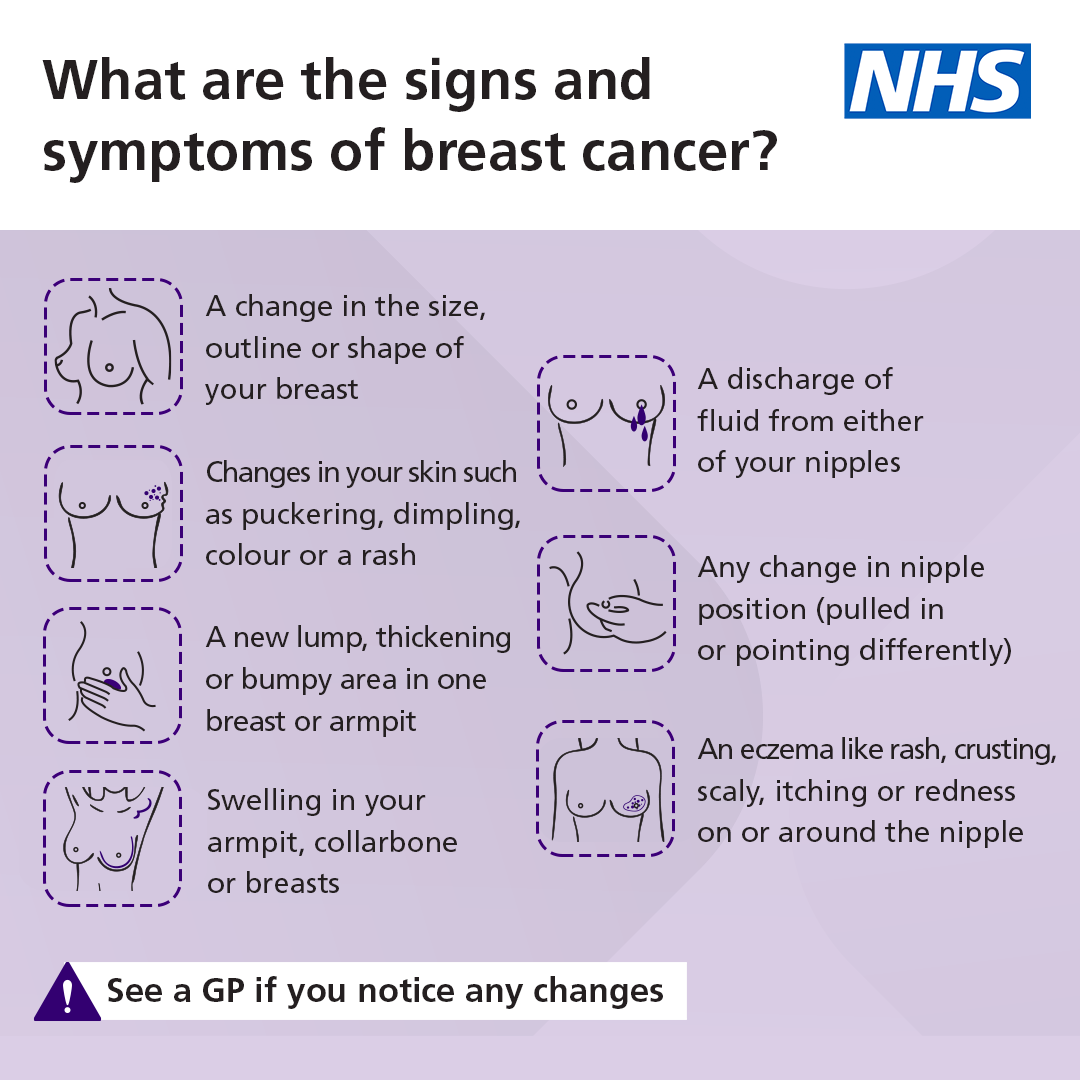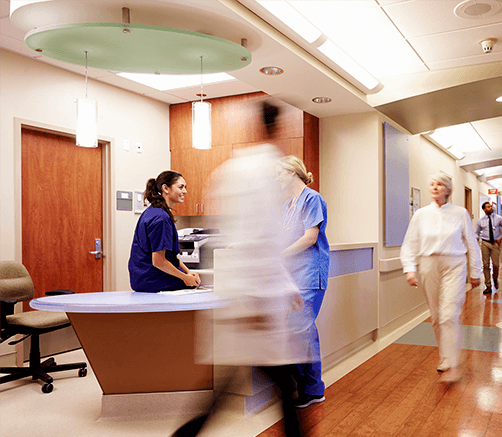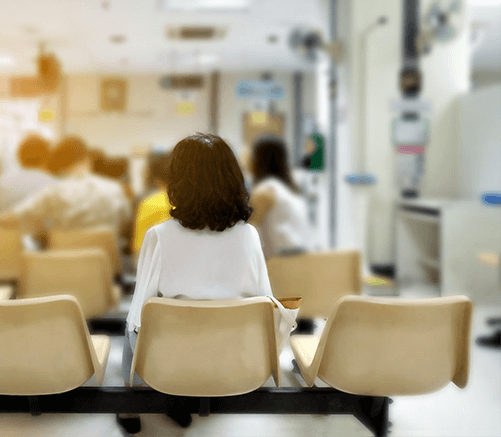Published on: 7 October 2025
Breast cancer is the most common type of cancer in women in the UK, and the chance of getting breast cancer increases as you get older. That’s why it’s important that people know the signs and seek medical advice as soon as possible. That’s the key message from NHS Herefordshire and Worcestershire during Breast Cancer Awareness Month this October.
It’s important to check your breasts and be aware of any unusual changes, such as:
- A lump or swelling in the breast, upper chest, or armpit
- Changes in the size, shape, or feel of the breast
- Skin changes (dimpling, puckering, redness, rash)
- Nipple discharge or inversion
If you notice anything unusual, please don’t wait – book an appointment with your GP as soon as possible.
Breast Screening can detect cancer before symptoms become apparent. That’s why anyone registered with a GP as female aged from 50 up to their 71st birthday will be invited for NHS a screening every 3 years. You'll automatically get your first invite for breast screening between the ages of 50 and 53. You'll get a letter in the post inviting you.
Finding cancer early can make it more likely that treatment will be successful, so check yourself regularly, and if you are invited for a breast screening it’s important that you attend.
Search ‘NHS breast screening’ to find out more Breast screening (mammogram) - NHS
Dr Louise Bramble, GP and Women’s Health Lead for NHS Herefordshire and Worcestershire said: “Like all cancers, breast cancer is much easier to treat if it’s caught early. That’s why you should check yourself regularly for symptoms such lumps or swellings, skin changes, nipple discharge or inversion. The screenings could even detect cancer before any symptoms become apparent.
The risk of breast cancer increases when you get older, so women from 50 to their 71st birthday are invited for a Breast screening every three years as a preventative measure. The screenings could even detect cancer before any symptoms become apparent, so it’s important that you attend them.
If you haven’t been called yet, but think you should have been, please contact you GP surgery. It only takes a few minutes and could save your life.”


